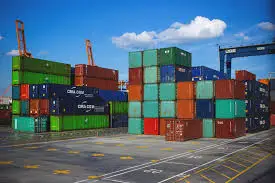Import curbs on Bangladesh haven’t hit local consumers yet in Tripura, traders say

Recent import restrictions on Bangladeshi goods have not caused major disruptions for consumers in Tripura, according to local traders. The Directorate General of Foreign Trade (DGFT) imposed the ban to protect domestic industries. While this policy change affects trade with Bangladesh, consumers in Tripura have not yet felt its impact.
Background: What the Import Ban Covers
The DGFT recently banned six categories of products from Bangladesh. These include ready-made garments, processed foods like chips and biscuits, rubber products, plastic goods, and wooden furniture. The ban covers several northeastern states, including Tripura.
Tusar Kanti Chakraborty, president of the All Tripura Merchant Association, supports the ban. He said that Indian manufacturers now produce better quality goods. He added that the ban will boost local industries and align with India’s self-reliance goals.
Chakraborty explained that imports from Bangladesh were mostly because of geographical proximity. Goods arrived faster and cheaper from Bangladesh due to the shared border.
Political and Trade Context
Trade relations between India and Bangladesh have grown tense. The political changes in Bangladesh, including the exit of the Hasina government in August 2024, have contributed to strain. Comments from Bangladesh’s chief advisor Muhammad Yunus during a visit to China also caused unease in India.
The DGFT order affects imports through Tripura and neighboring northeastern states like Meghalaya, Mizoram, Assam, and West Bengal. However, essential items such as fish, LPG, edible oils, and construction materials remain exempt and continue to flow freely.
Impact on Tripura’s Markets and Consumers
Despite the ban, local traders say there are no significant shortages or price rises. Several factors have helped the market adjust smoothly.
Firstly, Tripura’s reliance on Bangladeshi goods has declined in recent years. Indian producers and local manufacturers have taken over much of the market. This shift has eased the transition.
Secondly, the Tripura government has worked hard to improve border infrastructure and customs. These upgrades have helped ensure a steady supply of goods from Indian sources.
Traders have also diversified their suppliers. Many now source products from other Indian states. This reduces reliance on Bangladesh and supports Indian businesses.
Local consumers have adapted as well. Although Bangladeshi products were popular for their low prices, Indian alternatives now offer better quality and competitive pricing. Awareness campaigns have encouraged consumers to buy Indian-made products.
Future Outlook for Tripura and the Northeast
The import curbs could have long-term effects on Tripura’s economy.
Growth for Local Industry: The ban may push manufacturers to increase production and innovate. This could create jobs and boost skills in the state.
Shifts in Trade Patterns: Tripura and nearby states might strengthen trade ties with other Indian regions. This could help integrate the region’s economy but will require better infrastructure and market links.
Stable Prices: Initial fears about price hikes have not materialized. Government monitoring and market adaptability have kept prices steady.
Diplomatic Impact: The ban may strain India-Bangladesh relations. This could affect cooperation on issues like border security. Dialogue will be key to managing these tensions.
Voices from Tripura
Rajib Das, a retailer in Agartala, said, “We haven’t seen much impact. Suppliers adjusted quickly. Customers still buy what they need without big price changes.”
Sharmila Roy, a local consumer, noted, “Some Bangladeshi snacks disappeared, but good Indian options replaced them. I support buying Indian products to help our economy.”
Government officials are also watching the market closely. They want to avoid any disruptions that affect consumers.
Conclusion
The import ban on Bangladeshi goods marks an important policy shift. So far, Tripura’s consumers have not faced major problems. This is thanks to lower reliance on imports, better local production, and government efforts.
While challenges remain, the ban offers opportunities to grow Tripura’s industries. It can help build economic resilience and reduce dependency on imports.
Ongoing cooperation among the government, traders, and consumers will be vital. Together, they can manage this change for a stronger, more self-reliant Tripura.






